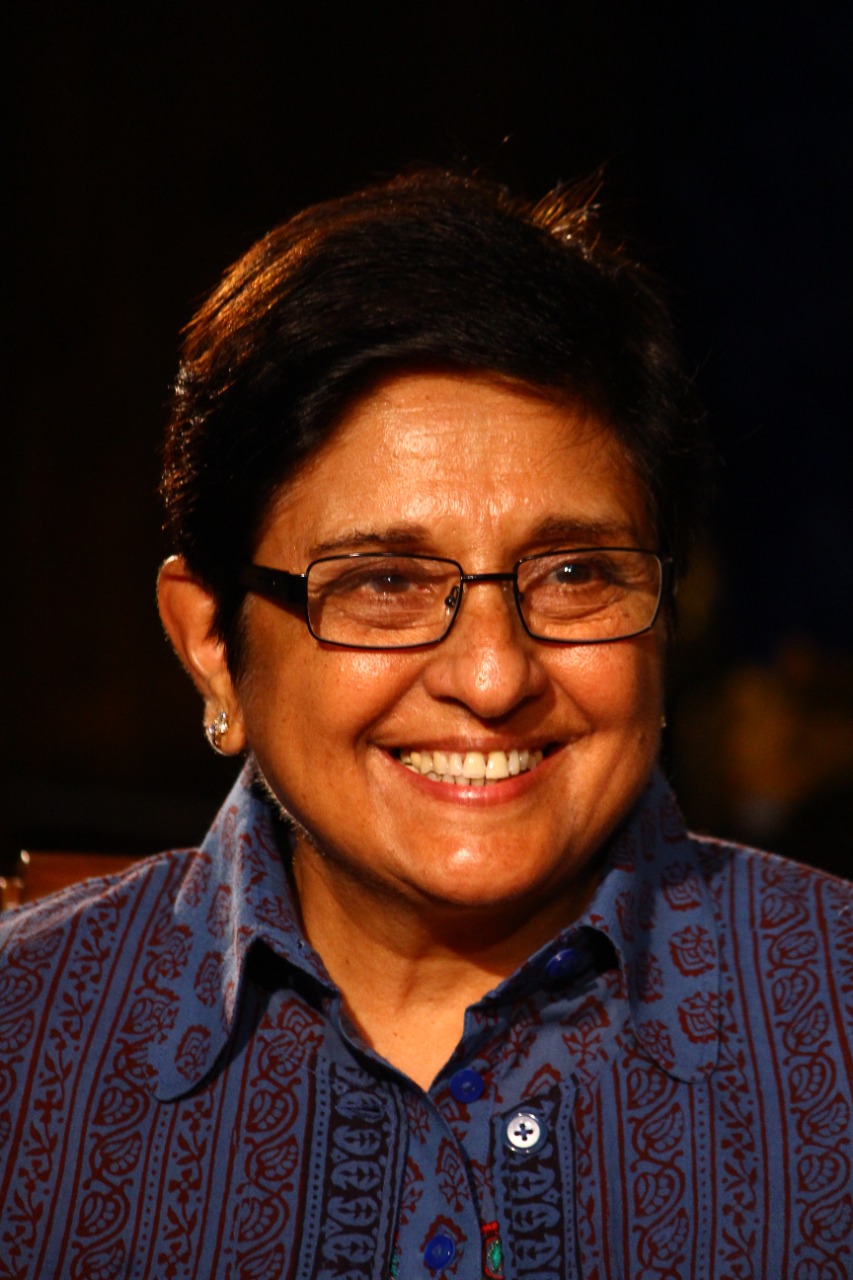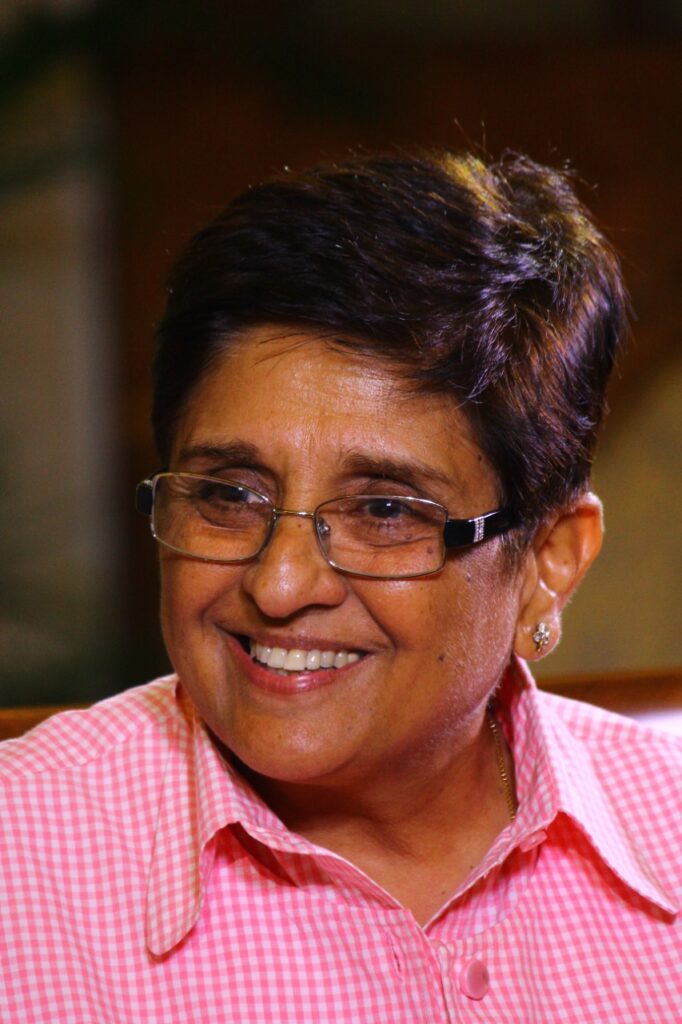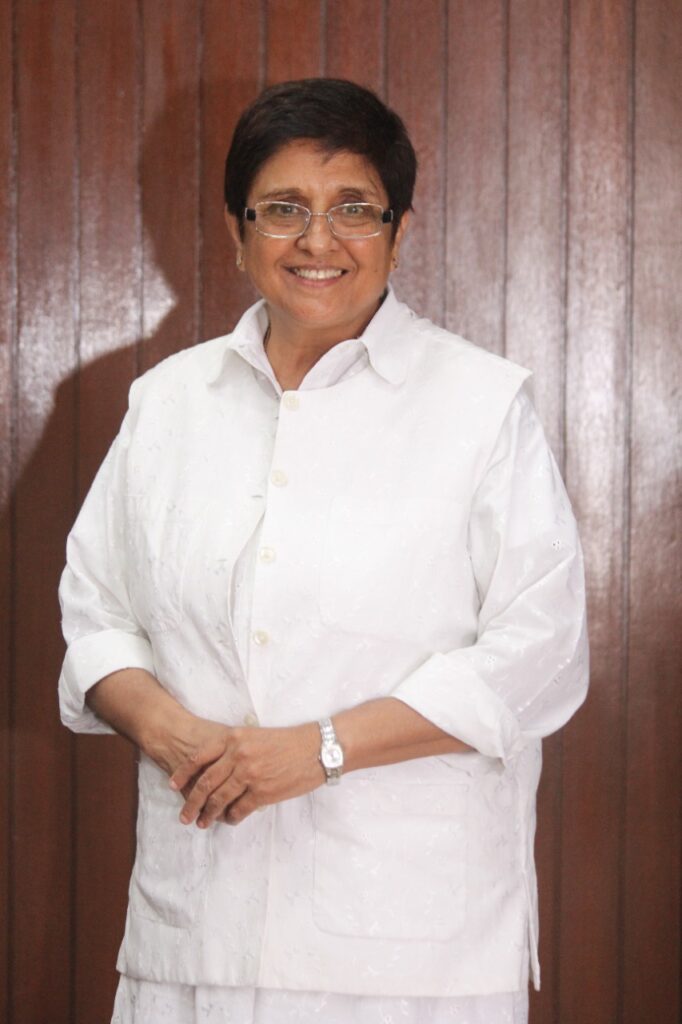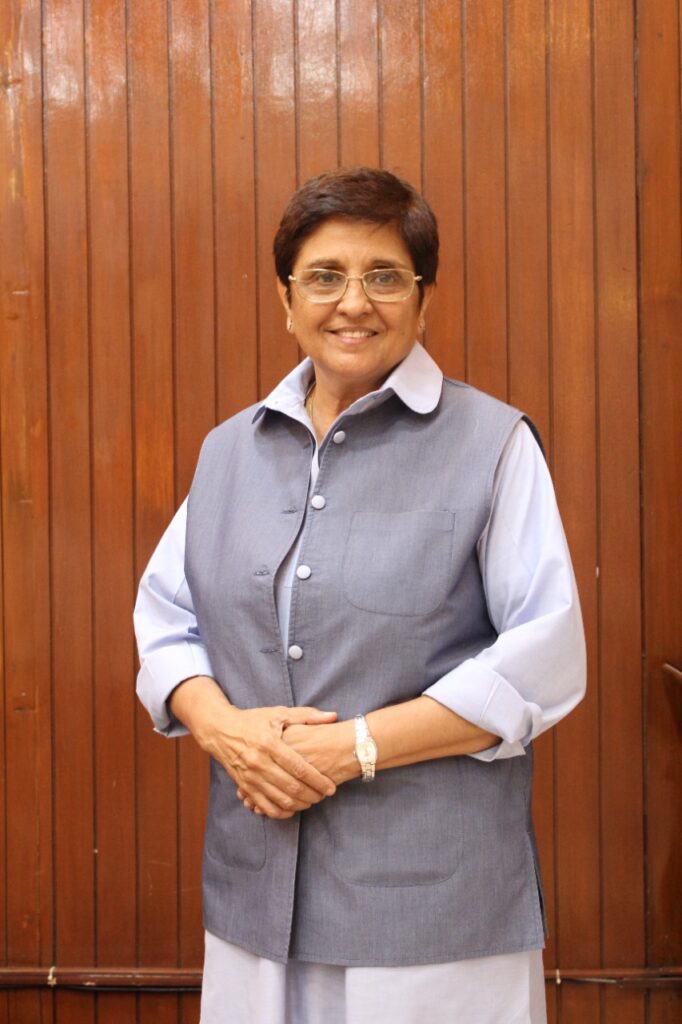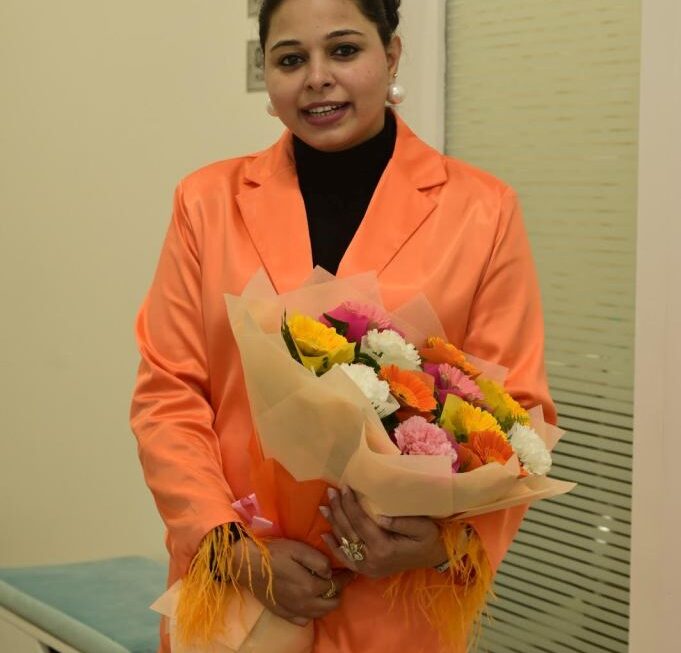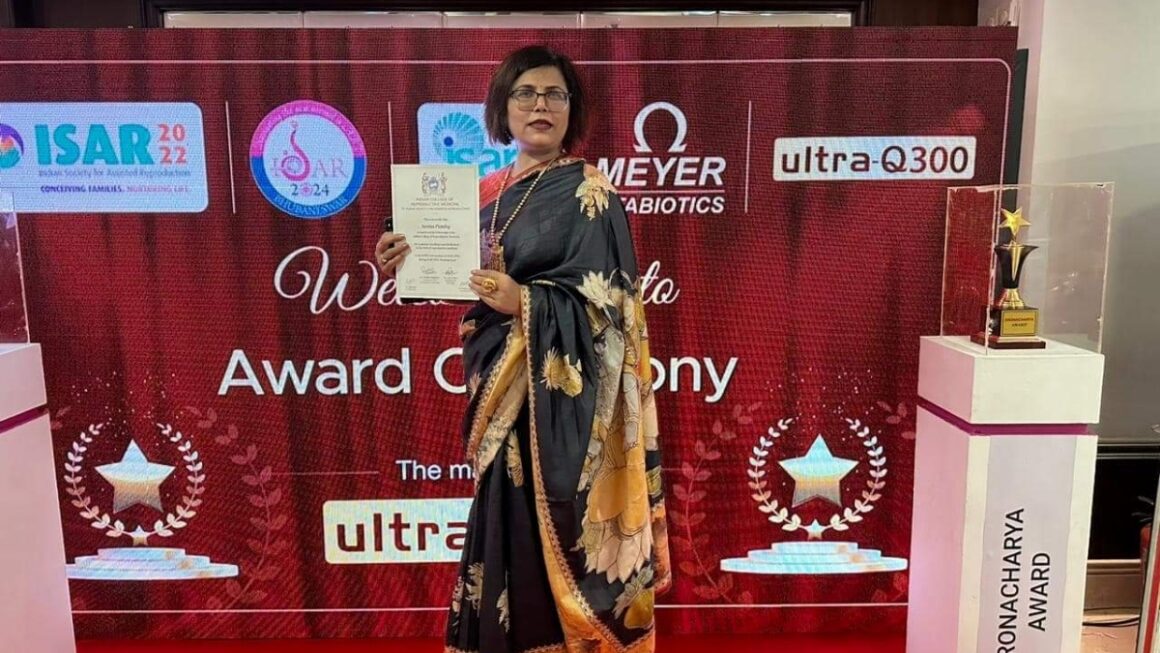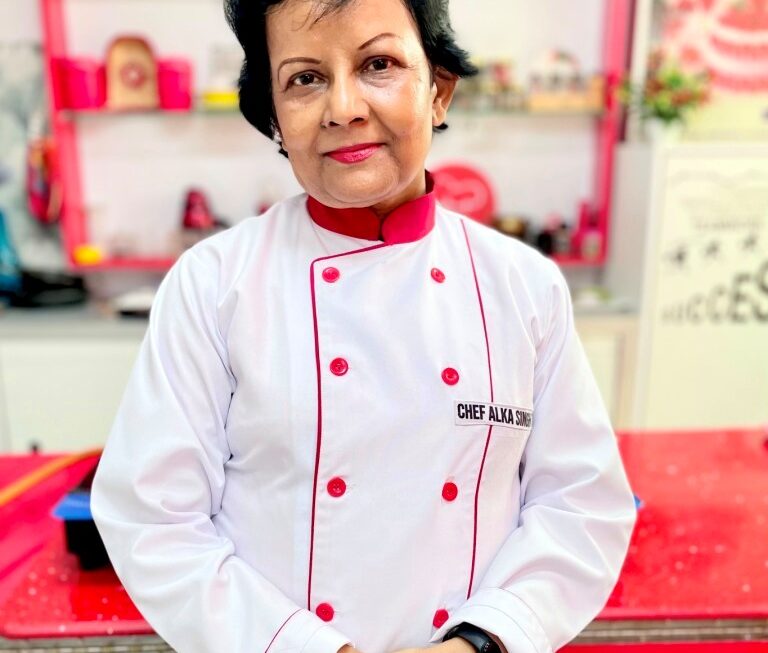Looking for a higher purpose in all her endeavours Dr Kiran Bedi involved herself in a lot of community initiatives through her journey. She is not just a role model for women, but she is a role model for all the men in the country.
To dive deep into her life, the challenges she faced and her lifetime achievements, Aditi from team WomenShine went into a conversation with her. That’s how it went:
1. You are a much-celebrated social activist, an IPS officer, and an icon who continues to inspire many. How did it all start and how was your childhood?
My childhood was very healthy, positive, caring, and full of activities, full of education, and full of sports, festivals, celebrations and family. We were four sisters and mine was a memorable, caring childhood. I went to the city’s best school, city’s best college. I was in college at the age of 14 because then it was 10+4 and graduated at the age of 18. I was in the Punjab University, Chandigarh from 18-20 I was doing my Masters and at the age of 21 and a half, I started working as a lecturer in Khalsa College for women in Amritsar. So, this was my upbringing, it was full of achievements I was the national junior tennis champion at the age of 16. We were very bonded sisters. I was a mother to the youngest sister while a twin fir the one who was close to my age. The younger sister went on to become an internationally renowned expert in autism.
2. Not many people know that you were a professional tennis player as well. What contribution did sports give to your journey?
Without sports I won’t be what I am today because competitive sports, working hard for sports gave me tremendous discipline, eating at right time, sleeping at right time, and friendships were wonderful. So, tennis made me travel around the country, it made me travel overseas to play for India. So, sports gave me a love for hard work, I learnt to lose and then come back to win and enjoy the victory, get a lot of prizes, trophies, name, and fame. So, all those things come with the sports but these came after. The first thing was a lot of learning to handwork, go an extra mile always and from this, I learnt to question injustice and also go by the rules. And also learnt one cardinal rule that you can win only if you deserve.
3. You have had a Meritorious Police career. What are the biggest challenges that you faced during that time?
The biggest first challenge was to establish that women can do it not by conscious effort but by being themselves. I was an Asian Tennis Champion when I entered the Indian Police National and Asian champion. I entered the service in July and won the Asian champion in February. The first challenge was to let people believe that women would be no less than a man, they can trust a woman in uniform. I think that let the message sink in that a woman is no less she is equal, equally given her opportunities, equally trained. I trained equally and I did the same training as the boys did because I wanted to give a clear message that the girls are better in many ways if some of them were smokers and I had more stamina than them. I ran the marathon; I did all the trekking with them and at many places, I was better than them. The second challenge was responsibilities for others and now in taking responsibilities for others somewhere you have resources but somewhere you don’t, how do I create resources, how do I lead my team, how do I get myself trusted, how do I let them know that I am working for them, it was leadership, how do I express my leadership but since I grew up very humanly I think it was very easy for me. I think by nature sports gave me leadership I was the head girl of my school, and I was a very good debater as well.
4. What was the trigger to establish Navjot Foundation in 1988 and the India Vision Foundation in 1994?
My one trigger was when I used to sit as a deputy commissioner of police. I have a habit of getting my triggers every day and I get my trigger by going to a field or listening to others. So, when I went to the streets during my patrolling, I used to see so many children surrounding me, following me. I saw two things there was selling drugs for money, and children out of school because there is no school. For women I set up tailoring and stitching centres and for children, I set up schools in the by lanes, we use by lanes for the gully schools 30 years ago and the gully was a single-teacher school and the single teacher was paid by the market associations, each Gali had 20 children. For the youth who were drug addicted, we started centres for them to treat them.
5. From 2009 to 2010, you had your own TV show, which was largely responsible for people knowing you and your vision. Was your life any different after the show?
I fitted like a dream in the program because this is what I used to do, to mediate all the programs, resolve issue, do justice, this was what I used to do. Siddharth Basu was very smart to identify, I asked him why did you choose me for AAP KI KACHERI and he said they did a survey, and an opinion poll and he says you were chosen because you have topped the list. I was like a natural fit here but I thoroughly enjoyed that show because I loved the way Anurag Basu directed the show because I found them getting sharper and sharper and of course application of the law.
6. Because of your efforts and achievements, you are a role model for many. However, do you have anyone as your role model?
I get inspiration from inspirational people like Swami Vivekananda, he is my role model, for me Mahatma Gandhi, and Nelson Mandela are the role model, and for me, spiritual saints are the role models. I draw inspiration from them and apply it to myself. I get inspiration from watching great biographical documentaries. I get inspiration from all the sources from individuals, documentaries, especially biographies.
Recently I saw the film Rocketry, it’s truly inspirational you don’t have to go beyond it. Recently I saw a documentary about Shimon Peres who was the president of Israel these are all very inspirational.
7. What can we all collectively do to actually bring a positive change in our country?
There are many aspects of a national development like economic development, social development, and environmental development and there is no one answer to all but one common factor in all of them is the person, the Indian, the character, and the mindset. So one common thing in all the development is the human being so if that character is the responsible character all directions will improve but if that character is the weak character then all these areas will be fits and starts. I think responsible character, responsible citizen is the key to all-round development.
8. Any take-home message or notes for all our women readers out there?
The future is in their hands as mothers. After all, I am the project of my parents. Am I not recognising them, parenting is not by chance, parenting should be a very conscious decision because parenting means living your life all over again, it is a responsible act and parenting it brings up boys and girls equally. Nation-making is in the hands of women more than the men because the child is closer to the mother and the majority of the women are teachers so women as teachers at home. I think the mother is the destiny maker. So that they can create brave, courageous, decision-making women and they will create responsible boys.

Interview by Aditi Gupta
Author’s bio:
A vivacious and lively girl living in Delhi, on her voyage for exploration of colours in life. A glimpse of what she does: Read, write, eat, Repeat!

